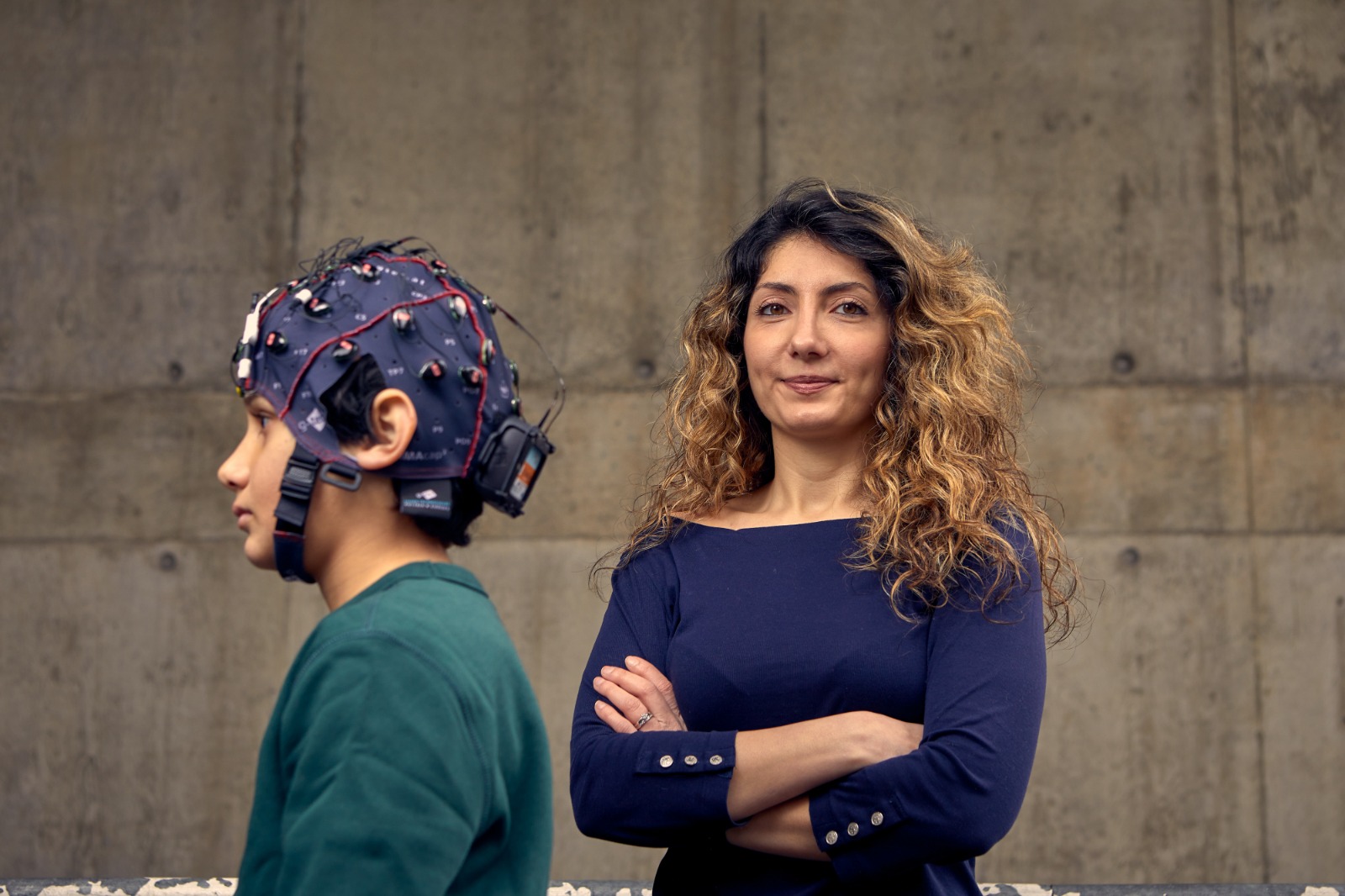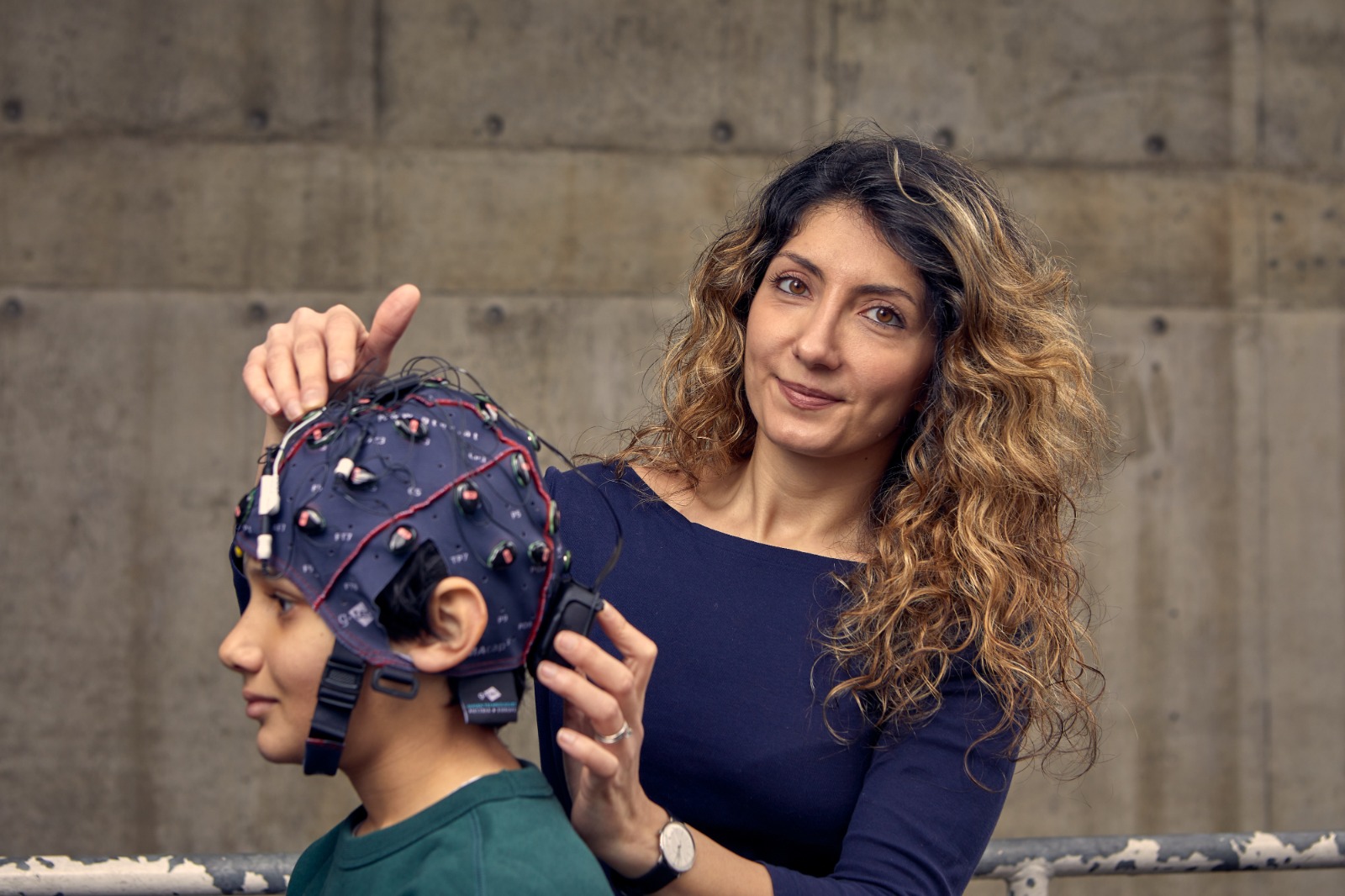Current:
E-Drone – Transforming the energy demand of supply chains through integrated UAV-to-land logistics for 2030
Aim: Our research vision is to examine the energy reduction potential of logistics solutions involving UAVs operating alongside traditional and sustainable last-mile delivery solutions (vans, cargo cycles and walking porters via micro-consolidation points). This involves generating fundamental new understanding of how UAV operations will function in shared airspace alongside manned aircraft under various regulations. The project uses a case study based around NHS pathology sample transportation involving simulated and live trials across the Solent region to investigate this.
Research Contribution: Agent-based modelling and multi-objective optimization with particular focus on routing and scheduling problems, service network design and transportation.
Funder: EPSRC
Amount: £346,634.09 of £1,503,867
Duration: Jan 2021 – June 2024
Investigators: Prof. T. Cherrett (PI), Prof. B. Anvari, Prof. J. Dickinson, Prof. J. Scanlan, Prof. G. Marsden, Prof. J. Chang, Prof. J.J. Zhang
Past:
LivingLAPT: future apt LIVING Lab for Autonomous Public Transport
Aim: Cities face challenges such as reducing emissions, improving the safety/mobility of cyclists/pedestrians, increasing quality of life for citizens. Driverless shuttles/pods can be a game changer for cities as they address many of these challenges. However, current solutions lack a transferrable regulatory/safety framework among European cities. Low public trust/acceptance in combination with high investments in the new technology (incl. insurance and safety driver) are not sustainable for cities and a massive barrier.
LivingLAPT will deliver sustainable driverless shuttle/logistics services among various European cities by phasing out the need for safety drivers in shuttles & moving towards remote operators who overlook a number of services simultaneously. This will be achieved through a robust transnational legal/safety framework as well as promoting user acceptance and trust in close collaboration with citizens, cities, operators, academia, industry, and policy maker.
This is a project in collaboration with 3 cities (Milton Keynes City Council, Brno, Prague), 2 universities (UCL, Ghent University) and 5 industries (PowerHUB, The Future Mobility Network, Applied Autonomy, Aurrigo, Bring Auto).
Activity output: Multi-city autonomous/driverless shuttle trials in three European cities following a stepwise process to overcome the current hurdles in user acceptance/trust in autonomous shuttles from citizens/operators.
Funder: EIT Urban Mobility
Amount: €1,631,810.00 (including co-funding)
Duration: Jan 2023- Dec 2023
Investigators: Prof. B. Anvari (PI/Project Lead), Prof. N. Tyler, Prof. H. Wurdemann
Micro-Freight Delivery Solutions: A Tale of Two Cities
Aim: This collaboration aims to address the challenges posed by the explosive growth in micro-freight deliveries, particularly those using motorized transport, by exploring sustainable alternatives such as smaller, lightweight vehicles powered by humans or clean energy. Its goal is to develop a research agenda that guides the planning, policy, and regulations for sustainable micro-mobility freight delivery solutions in urban areas.
Funder: The University of Sydney – University College London Partnership Collaboration Award (USyd-UCL PCA)
Amount: £10,000 ($10,000 AUD + £5,700 GBP)
Duration: October 2022 – July 2023
Investigators: Prof. B. Anvari (UCL PI), Prof Stephen Greaves (USyd PI)
LivingLAPT: future apt LIVING Lab for Autonomous Public Transport
Aim: Cities face challenges such as reducing emissions, improving the safety/mobility of cyclists/pedestrians, increasing quality of life for citizens. Driverless shuttles/pods can be a game changer for cities as they address many of these challenges. However, current solutions lack a transferrable regulatory/safety framework among European cities. Low public trust/acceptance in combination with high investments in the new technology (incl. insurance and safety driver) are not sustainable for cities and a massive barrier.
LivingLAPT will deliver sustainable driverless shuttle/logistics services among various European cities by phasing out the need for safety drivers in shuttles & moving towards remote operators who overlook a number of services simultaneously. This will be achieved through a robust transnational legal/safety framework as well as promoting user acceptance and trust in close collaboration with citizens, cities, operators, academia, industry, and policy maker.
This is a project in collaboration with 4 cities (City of Helmond , Municipality of Ricany, City of Hasselt, Kongsberg Municipality), 3 universities (Eindhoven University of Technology, UCL, Ghent University) and 6 industries (PowerHUB, The Future Mobility Network, Applied Autonomy, Auve Tech, Bring Auto, Staf Cars).
Activity output: Multi-city autonomous/driverless shuttle trials in four European cities following a stepwise process to overcome the current hurdles in user acceptance/trust in autonomous shuttles from citizens/operators.
Funder: EIT Urban Mobility
Amount: €1,281,907 (including co-funding)
Duration: Jan 2022 – Dec 2022
Investigators: Prof. B. Anvari (PI/Project Lead), Prof. N. Tyler, Prof. H. Wurdemann
Aim: AI-TraWell combines information on users’ needs, preferences, physical/mental wellbeing with real-time and predictive information about all modes of transport to help users to manage the increasing complexity of mobility, to deliver better and more reliable mobility services, to improve efficiency and contributes to the overall wellbeing and health of people living in our cities.
This is a project funded by EIT Urban Mobility to fulfil mobility needs. Through our bottom-up approach, AI-TraWell offers the opportunity of co-creating healthy future cities and transport services in close collaboration with (i) the Open & Agile Smart Cities (OASC), a non-profit, international smart city network, focused on open platforms and citizen engagement, and the extended EIT knowledge triangle including (ii) cities of various sizes with different mobility services (Cities of Munich, Lublin, Copenhagen, Istanbul), (iii) research and higher education institutions (Fraunhofer Society, UCL, TUe), and (iv) industrial partners (Achmea Risk Insurance, TomTom, ISBAK, Gehl Architects, and the external partner MVV Munich, coordinator and regulator of the entire Public Transport system in and around Munich, to shape the final product for commercialisation).
Funder: EIT Urban Mobility
Amount: €1,558,746 (including co-funding)
Duration: January 2020 – December 2021
UCL Investigators: Dr B. Anvari (PI/Project Lead), Prof. N. Tyler, Prof. P. Jones, Dr H. Wurdemann
SA2VE – Situational Awareness and trust during Shift between Autonomy levels in automated Vehicles
Aim: In the race towards the first commercially available fully Autonomous Vehicles, the number of highly AVs on roads will dramatically increase. Humans are challenged to change between autonomy levels causing safety concerns. SA2VE sets out to understand the effect of Situational Awareness and take-over request procedures on trust between drivers and highly AVs. Physiological/behavioural data and self-reporting SA and trust ratings will be analysed in driving scenarios based on real-world incidents involving highly AVs. For a successful rollout of fully AVs, it is of paramount importance to address aforementioned safety gaps in highly AVs until fully automated driving becomes feasible. This is a project in close collaboration with Ansible Motion, HORIBA MIRA and Reed Mobility.
Research Contribution: Agent-based modelling and multi-objective optimization with particular focus on routing and scheduling problems, service network design and transportation.
Funder: UKRI Trustworthy Autonomous System HUB – Pump Priming Programme
Amount: £149,973
Duration: April 2021 – March 2022
Investigators: Dr B. Anvari (PI), Dr Kate Devlin, Dr Katie Plant, Dr H. Wurdemann
In response to EIT UM’s COVID-19 Crisis’s call:
RAPID – RApid Prototyping In 3D
Aim: RAPID will use rapid prototyping in 3D (RAPID) to support city decision making and citizen engagement around changes and interventions to the built environment in response to COVID-19 restrictions such as social distancing. The result will be more informed decision making and more engaged citizens leading to greater acceptance of new ways of moving around the city through participatory redesign of public spaces. RAPID will use a library of 3D city assets with associated rules to allow investigation of different options and will include the ability to view citizen behaviours through the use of agents. Whilst the focus of RAPID is the response to the current COVID-19 crisis it will have value beyond as cities explore new urban designs in response to changing behaviours.
This is a project funded by EIT Urban Mobility to fulfil mobility needs. The RAPID consortium is composed of 6 institutions from 3 European countries (2 research and development institutions, 2 cities and 2 industrial partners) driving a knowledge-based society. In collaboration with Pixel Mill, Studio Profondo, Fraunhofer Society, Municipality Of Sabadell, and City of Copenhagen we help increase/restore economic activity and help distribute people more evenly around a city.
Funder: EIT Urban Mobility
Amount: €347,686 (€291,113 + €56,573 in-kind contribution)
Duration: July 2020 – December 2020
UCL Investigator: Dr B. Anvari (PI/Project Lead)



This project combines hand gestures and rhythm with mind-controlled virtual robots to enable improved social interaction and coordination among young students and people with complex learning difficulties. By transposing/translating/transcribing a message from the mind of one participant to the peers through movement, The Dancing Brain will encourage young students that STEM is fun, and empower people with dementia to create a conversation and dialogue with their peers. This is a cross-disciplinary collaboration between Akademi and the Intelligent Mobility’s group/lab at UCL (IM @UCL).
Funder: EPSRC Impact Acceleration Account
Amount: £9,500
Duration: January 2020 – May 2020
Investigators: Dr B. Anvari and Suba Subramaniam
Early Career Capital Equipment – IM@UCL
Aim: This grant will be used to procure an integrated set of physiological monitoring technologies in a car simulator in order to explore human driver interaction inside and outside of future semi-/fully-autonomous vehicles.
Funder: EPSRC Capital Award
Amount: £120,320 (£100,320 + £20,000 in-kind industrial contribution)
Duration: July 2019 – March 2020
UCL Investigators: Dr B. Anvari (PI), Dr Helge Wurdemann, Dr Laura Toni, Dr Francesca Boem, Dr Jemima Unwin, Mr Kamal Achuthan, Mr Daniel Scott, Dr Mehdi Baghdadi, Dr Will Newton, Dr Ellie Cosgrave, Dr Aneesha Singh, Dr Will McDowall.
iSeat-Towards an Intelligent Driver Seat for Autonomous Cars
Aim: The iSeat system builds upon a complete re-think of the manner in which humans interact with autonomous cars. The smart combination of sensor systems, machine learning, affective computing, human factors, haptics and robotics will result in a bi-directional human-machine cooperation that is safe, intuitive, effective, & personalised.
Funder: EPSRC Engineering for a Prosperous Nation
Amount: £251,453
Duration: January 2019 – October 2020
Principle-Investigator (PI) & project partners: Dr B. Anvari (PI), Dr Helge Wurdemann and Prof. N. Stanton
G-Active – Green Adaptive Control for Future Interconnected Vehicles
Aim: G-Active aims at reducing CO2 and NOx emissions in passenger and light duty road vehicles by implementing new energy management systems which are global, predictive, adaptive, and scalable.
Research Contribution: Travel time estimation and prediction models
Amount: £263,835 of £1,668,848
Duration: November 2016 – August 2019
Investigators: Prof. R. Lot (PI), Prof. N. Stanton, Dr S. Evangelou, Dr B. Anvari , Dr S. Box
Towards A New Traffic Prediction Technique For Improving Road Safety In Brazil
Aim: The aim of this visit is to develop a model to predict vehicle’s future location using real traffic traces and improve VANETs performance
Research Contribution: A travel time estimation and prediction model
Amount: £3,078
Duration: May – June 2019
Investigators : Dr B. Anvari and Prof. W. Kraus Junior
University Partnership Programme (UPP)
Research Contribution: An open-source traffic control test-bed
Amount: £74,866 of £374,330
Duration: November 2016 – March 2018
Investigators: Prof. N. Hounsell (PI), Dr B. Anvari, Prof. J. Preston, Prof. N. Stanton
Collecting and Analysing Traffic Data Through Drone Vision
Aim: This project investigated the potential benefit of leveraging Unmanned Aerial Vehicles (UAVs) equipped with Computer Vision software in the development of future Intelligent Transport Systems (ITS).
Amount: £6,319
Duration: June 2017 – December 2017
Investigators: Dr B. Gao (PI), Dr B. Anvari, Prof. J. Preston, Dr. S.D. Prior, Dr. J. Hare
NIHR Global Health Research on Road Safety (16/137/122): Socio-Technical systems Approach to Road Safety (STARS)
Aim: The overall goal of this project is to reduce the number and severity of road accidents in Low- and Middle-Income Countries (LMICs) through an underpinning philosophy of “local solutions for local problems”
Amount: £70,000 of £1,986,387
Duration: August 2017 – July 2020
Investigators: Prof. N. Stanton (PI), Prof. J. Preston, Prof. P. Roderick, Dr B. Anvari, Dr K. Plant, Dr G. Yao